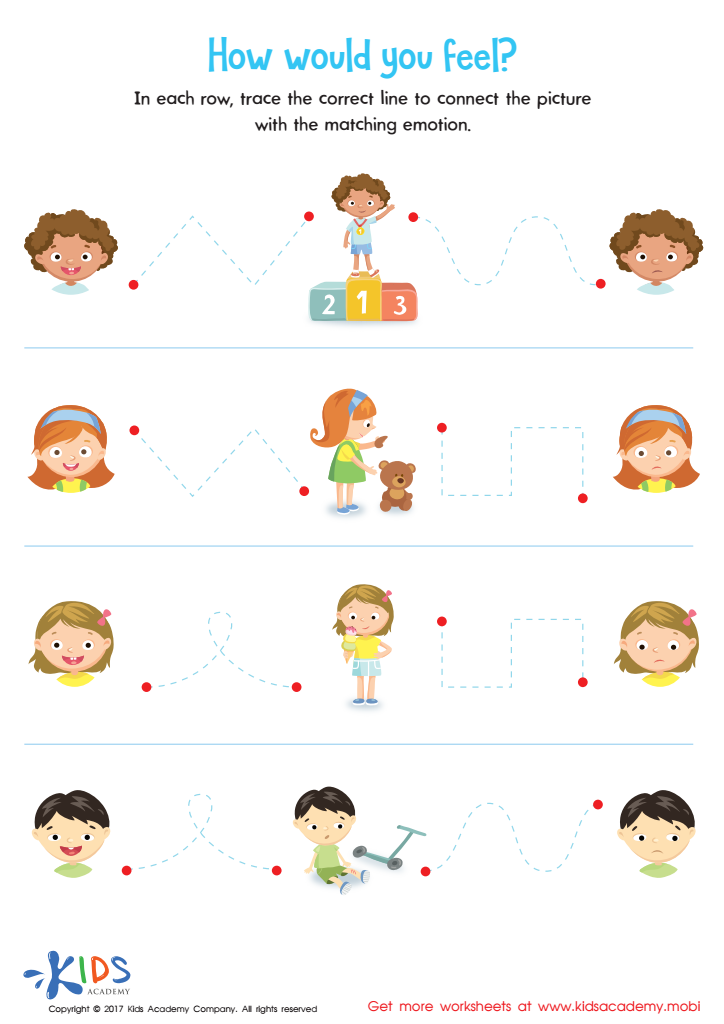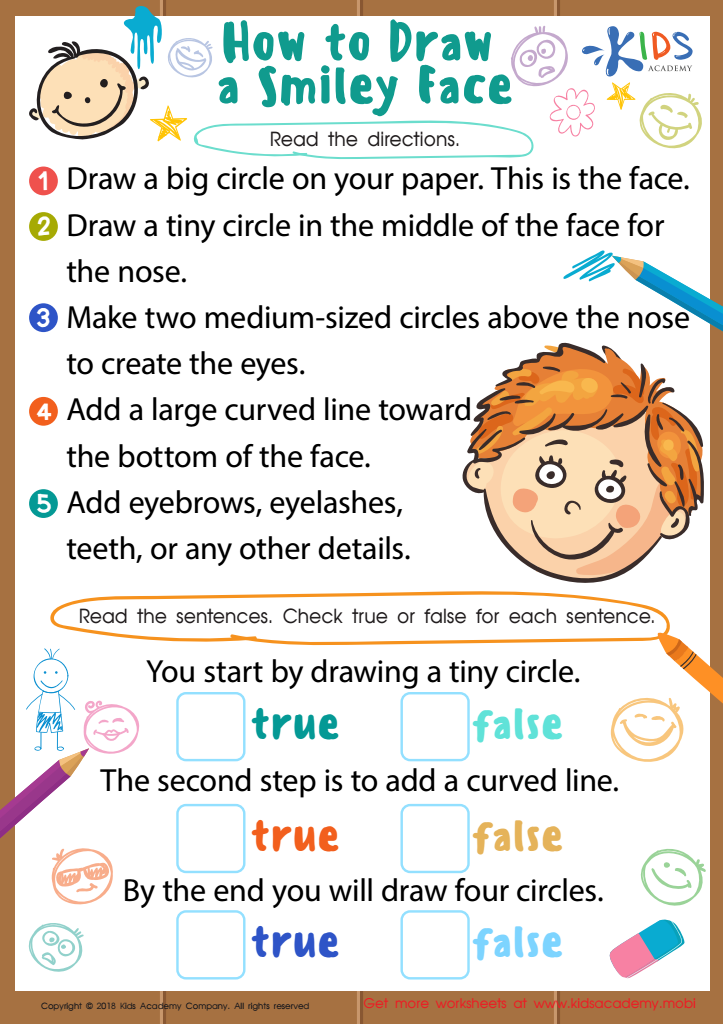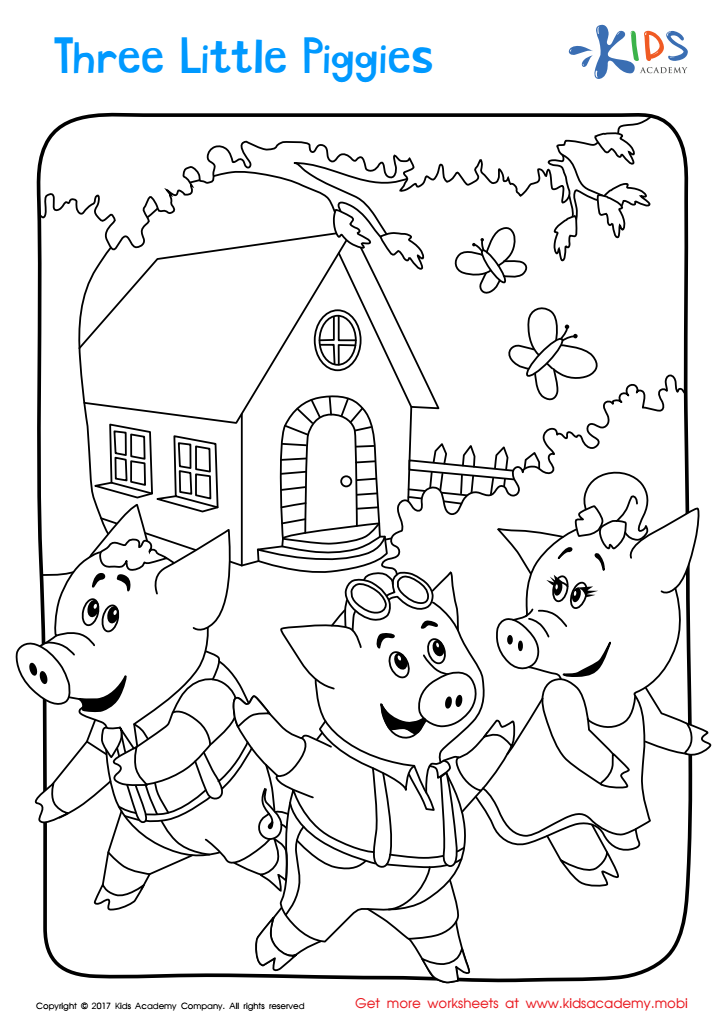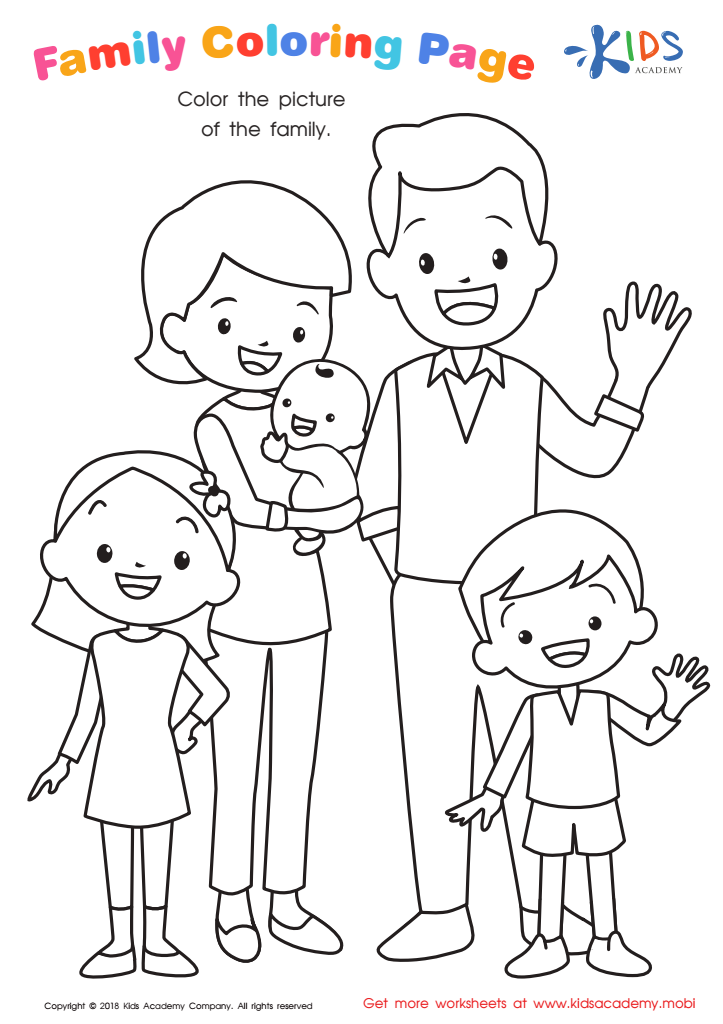Emotional expression Worksheets for Ages 8-9
4 filtered results
-
From - To
Discover our engaging Emotional Expression Worksheets designed specifically for children aged 8-9! These resources encourage young learners to identify and articulate their emotions, fostering essential skills for social interactions and personal development. Through fun activities and relatable scenarios, children will explore feelings like happiness, sadness, anger, and fear, enhancing their emotional literacy. Our worksheets promote critical thinking and self-awareness, helping kids better understand their own emotions and those of others. Perfect for classroom use or at-home learning, these worksheets provide a comprehensive approach to emotional intelligence, preparing children for healthier relationships and improved communication. Start nurturing emotional skills today!


Feelings and Emotions Worksheet


How to Draw a Smiley Face Worksheet


Three Little Piggies Printable Coloring Page


Family Coloring Page
Emotional expression is crucial for children aged 8-9, as this developmental stage involves significant social and emotional growth. During these years, children are beginning to understand their own feelings better and how to communicate them effectively. Parental and teacher support in this area fosters healthier relationships and self-awareness.
Firstly, encouraging emotional expression helps children develop essential skills like empathy and communication. This age group often interacts more with peers, and recognizing and articulating their emotions can enhance their friendships and support systems.
Additionally, children who can express their emotions positively are more likely to manage stress and anxiety. When teachers and parents model and support emotional transparency, children learn to identify and cope with their feelings instead of suppressing them, which can lead to mental health issues later in life.
Furthermore, positive emotional expression contributes to a conducive learning environment. Emotionally aware children are typically more engaged, motivated, and resilient learners. They are more likely to take constructive feedback and work collaboratively with others.
Ultimately, fostering emotional expression equips children with vital life skills, promotes well-being, and creates a supportive atmosphere where they feel safe and valued.
 Assign to My Students
Assign to My Students














